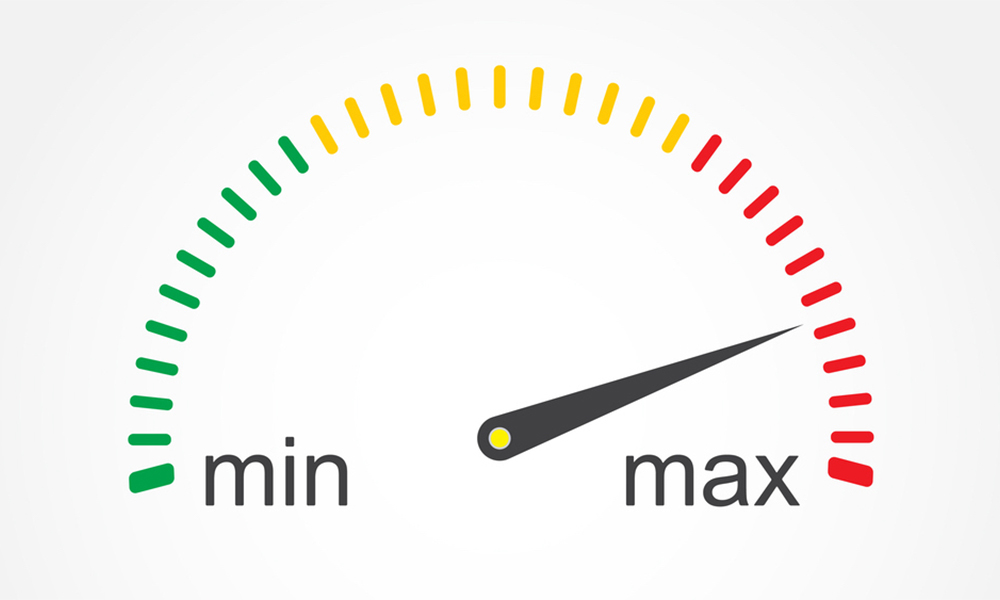In her commencement speech at Harvard a few years ago, Oprah Winfrey highlighted how the need for validation is universal:
I have done over 35,000 interviews in my career and as soon as that camera shuts off everyone always turns to me and inevitably in their own way asks this question “Was that okay?” I heard it from President Bush, I heard it from President Obama. I’ve heard it from heroes and from housewives…. they all want to know one thing: was that okay? Did you hear me? Do you see me? Did what I say mean anything to you?
This desire for validation extends to the workplace as well. Research shows that employees who feel their manager cares about their wellbeing are more engaged and committed – and appreciation is a core component of wellbeing.
According to one study, 90 percent of employees will stay on longer with a company if they feel appreciated, while 82 percent are willing to work harder for an appreciative boss.
Sincere praise energises us and motivates us to deliver our best work. Within teams, it creates positive energy and loyalty, driving better collaboration and higher productivity.
Many times, we think appreciative thoughts but stop short of actually expressing them. We all love to be recognised and thanked for our contributions, so why do we feel awkward when it comes to appreciating others? In Why Appreciation Matters So Much, Tony Schwartz explains:
The obvious answer is that we’re not fluent in the language of positive emotions in the workplace. We’re so unaccustomed to sharing them that we don’t feel comfortable doing so. Heartfelt appreciation is a muscle we’ve not spent much time building, or felt encouraged to build. Oddly, we’re often more experienced at expressing negative emotions.
In his Harvard Business Review article, Why Employees Need Both Recognition and Appreciation, Mike Robbins draws a distinction between recognition and appreciation. The former is dependent on a positive outcome – it might come in the form of a bonus, an award or a promotion. However, recognition has its boundaries. Firstly, it’s conditional on performance. Secondly, it’s limited since every single employee can’t be given a raise or an award. Appreciation, on the other hand, goes beyond recognition. As Robbins explains:
[It’s] about acknowledging a person’s inherent value. The point isn’t their accomplishments. It’s their worth as a colleague and a human being…. Even when people succeed, inevitably there will be failures and challenges along the way; depending on the project, there may not even be tangible results to point to. If you focus solely on praising positive outcomes, on recognition, you miss out on lots of opportunities to connect with and support your team members – to appreciate them.
Making your team members feel seen and valued isn’t rocket science. It’s made up of small, heartfelt actions that are performed consistently over a long period of time. Regardless of how busy you are or how constrained your budget is, here are 10 simple yet effective ways to become better at appreciation :
1. Notice what’s going right
Too often, leaders take for granted all the things their team members do well. Only when things go wrong do they pay attention and express their thoughts. Unfortunately, this results in very lopsided feedback. The goal should be for appreciation to outweigh criticism; according to one extensive study, the ratio of positive to negative feedback is 5.6 to 1 in high-performing teams and .36 to 1 in low-performing teams. As a leader, it’s crucial for you to notice and acknowledge your team members’ positive behaviours, qualities and actions – don’t miss out on these ongoing opportunities for appreciation. (Try tracking your ratio for a week to see where you stand.)
2. Write a note
This tried-and-tested way of expressing thanks remains highly effective, maybe even more so in this instant digital age. A handwritten note takes only a few moments to create but the payoff is huge. It tells the person you cared enough to sit for a minute, think about their contributions, and write the words down. Keeping a stack of cards on your desk is a great reminder to say thank you more often.
3. Be specific
“Good job” or “great work” is nice to hear, but the impact is relatively low. When thanking someone, try to tell them exactly what you value about them – whether it’s the persistence they showed in meeting this month’s targets, the way they resolved a vendor conflict or even simply their optimistic disposition during a tough time. The more specific you are, the more meaningful your praise.
4. Check in
“People don’t care how much you know until they know how much you care”, said Theodore Roosevelt. Your appreciation should extend to the individual’s Whole Self, not just their professional side. Get to know your team members beyond the workplace – their interests, their families, their weekend plans. Check in every now and then to see how they’re doing outside the office. This is the simplest way to show you care about their overall wellbeing.
5. Adapt to cultural differences
As our organisation expands across the globe, it’s important to take note of the different cultural norms across borders. In When Crossing Cultures, Don’t Forget Praise, Andy Molinsky and Christian Höferle give the example of a German-born manager whose team members in the US started quitting one after another. It turned out that the problem was cultural: in keeping with Germany’s working style, the manager rarely praised her American employees, leaving them feeling unappreciated and undervalued. If you’re leading a multicultural group, make an effort to appreciate your team members in ways they find meaningful. This means doing your homework – a trusted colleague or mentor with local knowledge can be helpful.
6. Thank less obvious candidates
Beyond your immediate team members, there are bound to be many other people who have made a difference in your professional life. When is the last time you expressed your appreciation for a mentor’s guidance, a contact’s referral or an industry peer’s advice? Make it a point to thank these not-so-obvious people for their help.
7. Give the gift of attention
One of the most-overlooked ways of showing appreciation is by listening to people. This could be as simple as putting away your phone and laptop and focusing fully on what a team member is saying. Or you could go the extra mile and proactively ask for their feedback and ideas, demonstrating that you value their input.
8. Practice on yourself
If you have a tough time appreciating others, why not start with yourself? Practice positive self-talk on a daily basis: take a few moments to think about what you did well today, and praise yourself. As you become more comfortable with the language of appreciation, it will become easier and more natural to praise other people as well.
9. Share the stage
A great way to recognise a team member’s value is to shine a spotlight on them. Speak about their accomplishments at a meeting or company townhall, or invite them to present their work at a high-level gathering. You could also express your appreciation on the company’s virtual network.
10. Reward innovatively
Rewards don’t always have to come in the form of monetary bonuses or expensive prizes. There are other creative ways to show your appreciation for the contributions of your team members. For example, you could offer them their pick of upcoming projects, nominate them for a coveted learning opportunity or connect them with a mentor who can help them grow.








Comments